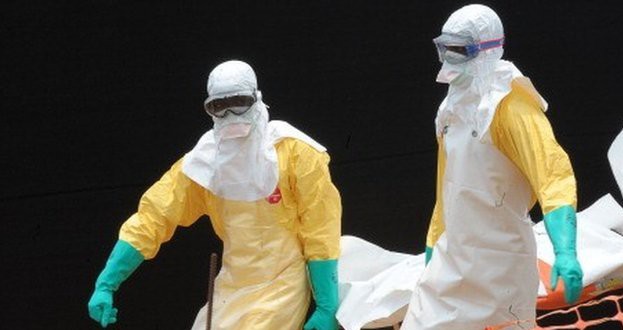
The World Health Organization marked a grim milestone Thursday in the biggest-ever Ebola outbreak, estimating that the virus had killed over 10,000 people, mostly in the West African nations of Guinea, Liberia and Sierra Leone.
Fifteen other Ebola deaths have also occurred in Mali, Nigeria and the United States.
When Ebola was first detected in March 2014 in Guinea’s forest, officials assumed the deadly virus could quickly be stamped out, just as it had in more than two dozen previous outbreaks, mostly in central and eastern Africa. But health officials now acknowledge they were too slow to respond to this emergency, allowing Ebola to cross porous borders in a region where broken health systems were unable to stop its spread.
A huge global response — including soldiers sent by Britain, the U.S. and other nations — has slowed the deaths from Ebola dramatically, especially Liberia, but the virus appears stubbornly entrenched in parts of Guinea and Sierra Leone, where health officials are still reporting flare-ups and resistance to infection control measures.
A look at the Ebola outbreak:
World Health Emergency
WHO declared Ebola an international health emergency in August — but critics have slammed the agency for waiting until there were nearly 1,000 deaths to do so, even in the face of repeated and urgent warnings from aid groups on the ground. WHO recently announced it was forming an independent expert panel to assess its response. Ebola cases also emerged elsewhere in Africa, including Nigeria, Senegal and Mali, and small outbreaks later spread to the U.S. and Spain.
Where Things Stand: Liberia
Liberia, once the hardest-hit country in the Ebola outbreak, released its last Ebola patient on March 5. It has now begun a 42-day countdown and if no new cases are found in that period, it will be declared Ebola-free according to WHO standards. To mark the epidemic’s downturn, Liberian President Ellen Johnson-Sirleaf re-opened the country’s borders with neighboring countries. Ambulances in Liberia have also been dispatched to help stop Ebola in Sierra Leone and the government recently bought a 25-acre plot of land outside the capital to bury Ebola victims.
Where Things Stand: Guinea and Sierra Leonne
Both Guinea and Sierra Leone are still reporting dozens of new cases every week and the number of Ebola deaths taking place outside of hospitals remains high, suggesting that people are wary of seeking help or are hiding cases. Additionally, health officials say many of the new Ebola cases are not linked to other known cases — meaning they aren’t a known contact of an Ebola patient. This is “indicative of significant challenges in terms of contact tracing and community engagement,” according to the WHO. In both countries there are still regular attacks against Western aid workers and officials are unable to track where the Ebola virus is spreading.
Challenges Ahead
Health officials have warned that the threat of Ebola will remain extremely high until the number of cases is brought to zero. While significant progress has been made towards slowing the rate of new infections, there are now new challenges facing the Ebola response.
The Secretary-General’s Special Envoy on Ebola, Dr. David Nabarro, recently told the UN General Assembly that the final phase of “getting to zero” cases may well be the hardest, saying the hunt to track down the virus is “like looking for needles in haystacks.” Having strong surveillance capabilities on the ground to identify people with Ebola, to confirm diagnosis, to quickly arrangement arrange effective treatment, to identify people that are their contacts and to keep those people under review for 21 days “is a really difficult task,” he said.
The WHO also noted that West Africa’s upcoming rainy season — beginning in April — may make it even more difficult to get into remote areas. Last year’s rainy season was when Ebola began to explode, but experts are still not sure why.
A Leap Ahead For Vaccines
The outbreak has had one silver lining — it has sped up the development of Ebola vaccines and treatments, something researchers have been working on for years.
WHO and its partners have already started testing two experimental shots, including a recently launched large-scale study to see if a vaccine can help protect people already exposed to the lethal virus but who haven’t yet developed the disease. Even though the vaccine may come too late to make a difference to this Ebola outbreak, it could prove invaluable later.
“An effective vaccine to control current flare-ups could be the game-changer to finally end this epidemic and an insurance policy for any future ones,” said Dr. Marie-Paule Kieny, who leads the Ebola Research and Development effort at WHO. She noted that if a vaccine is found to be effective, it would be “the first preventive tool against Ebola in history.”
